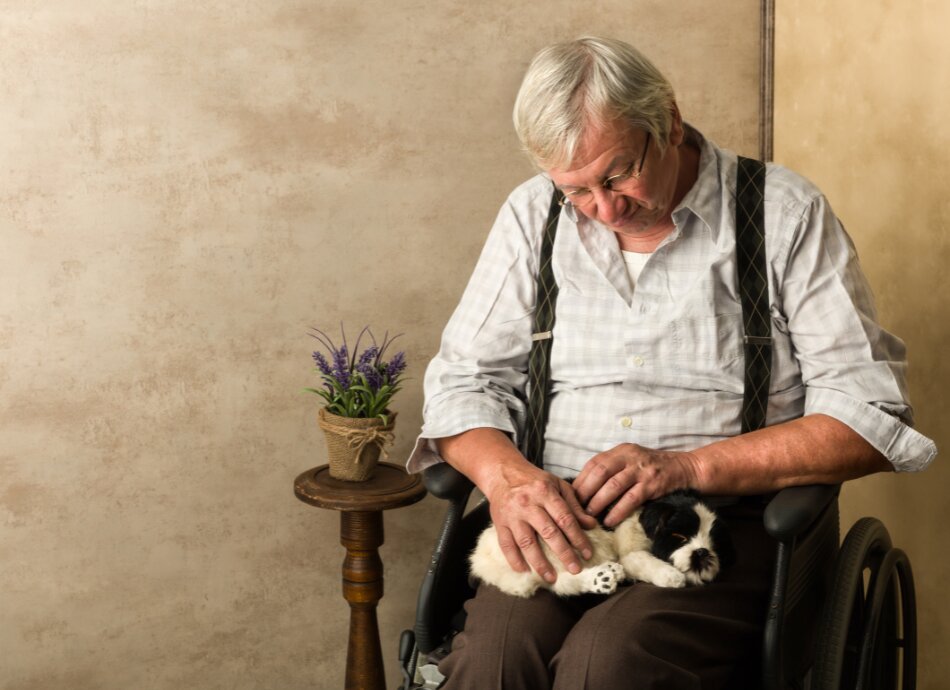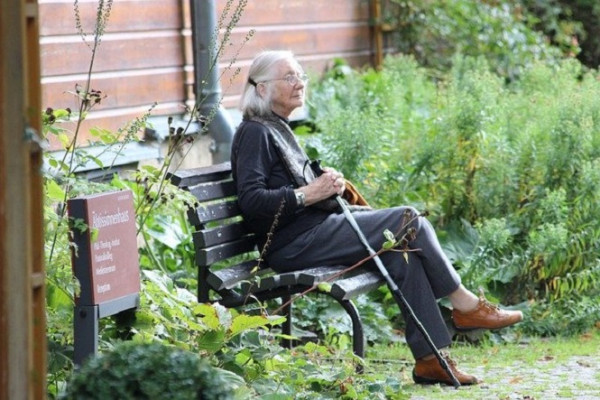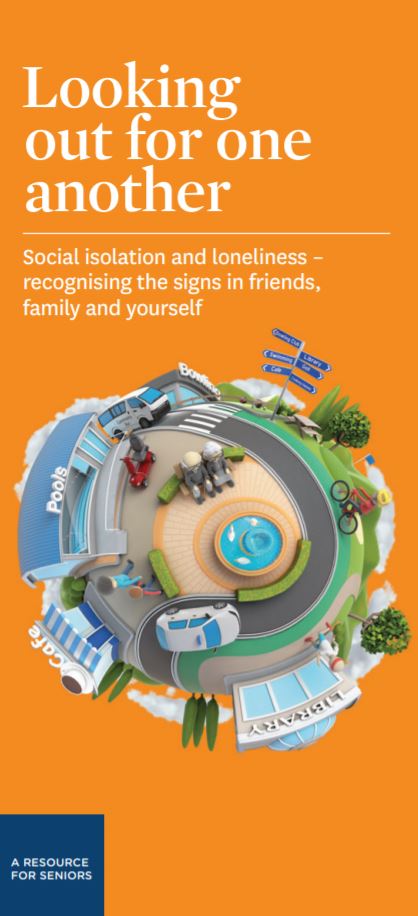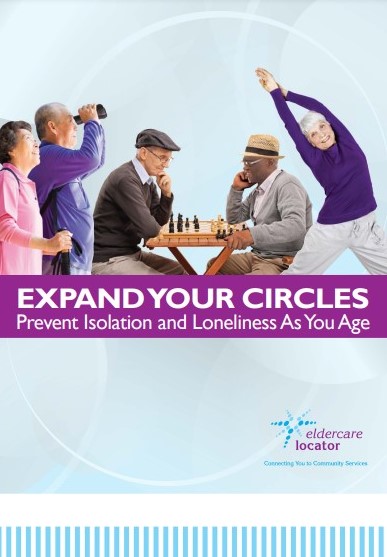You can now add Healthify as a preferred source on Google. Click here to see us when you search Google.
Social isolation
Key points about social isolation
- Social isolation means having little to no social contact – lacking connection with friends, family/whānau and your community.
- Social isolation can negatively affect your physical and mental health.
- Social isolation is different from loneliness.
- While it can affect people of any age, older people are particularly vulnerable to social isolation.
- There are simple things you can do to reduce your social isolation and become more socially connected.
- There are a number of services and agencies that can help.

Social isolation means having little to no social contact and few people to interact with regularly. If you are socially isolated you may:
- stay at home for long periods of time
- have little or no contact with friends, family/whānau and acquaintances
- not be involved in the community
- have limited access to services.
You can be socially isolated on purpose – you may choose to keep to yourself. Or you may feel socially isolated and wish for more social contact than you have.
Social isolation is different from loneliness. Loneliness is feeling sad or distressed about being by yourself or not being connected to the world around you – even if you have lots of social contact. Read more about loneliness.

Image credit: 123rf
You can experience social isolation at any age or stage of life.
You are more likely to experience social isolation if you:
- live alone
- don’t have access to transport or can’t leave your home
- are in poor health, eg, if you have a long-term illness or disability
- find it difficult to meet new people
- have relocated to a new and different environment
- have lost a loved one or friends due to death or relocation
- are separated from your family/whānau
- have had a major life change, such as retiring
- are unemployed or experience financial hardship
- are a caregiver
- live rurally
- live in an unsafe or hard to reach neighbourhood or community
- have a small social network and/or not enough social support
- belong to an ethnic, religious or other cultural minority group or the LGBTQI+ community
- experience family violence
- have trouble hearing
- have language barriers
- have psychological or cognitive challenges, eg, depression.
Loneliness can also lead to social isolation. If you are lonely, you may feel insecure, abandoned, unwanted or other negative emotions. These feelings may lead you to withdraw and have less contact with you social networks over time.
In a recent study (before the COVID-19 pandemic), the following groups of people were most at risk of feeling socially isolated in Aotearoa New Zealand:
- people who were unemployed
- people who have had a disability
- migrants to Aotearoa New Zealand
- people living in rural areas
- people identifying as Asian
- people aged 65 or over.
Older people are particularly vulnerable to social isolation or loneliness due to loss of friends and family/whānau, deteriorating health and mobility, or reduced income.
Being socially isolated for a long period of time can have a negative impact on your physical health and mental wellbeing. Social isolation has been linked to cognitive impairment, reduced immunity and a higher risk of cardiovascular disease.
Social isolation can also increase your risk of experiencing mental health issues such as depression, dementia(external link), social anxiety and low self-esteem(external link). Being socially isolated puts you at increased risk of dying prematurely.
Making and keeping up social connections is the key to overcoming social isolation. Staying socially connected can help your physical and mental wellbeing.
Here are a few steps you can take:
- Look after your wellbeing. Things like eating well, exercising, getting enough sleep and getting out of the house can lift your mood and confidence.
- Take small steps to be around other people. Go for a coffee or to the shops and smile at the cashier, smile or say hello at people you pass on the footpath, make small talk while in a queue, etc.
- If you have a dog, go for a walk with the dog and smile at or say hello to neighbours you walk past.
- Reach out to your family/whānau and friends. Reply to an email, ring someone for a chat or meet for a coffee. Technology can be a big help – try texting, calling or having a video chat with friends and loved ones.
- Join a club or group. Get involved in something that interests you – a book club, a sewing group, a walking group. Or volunteer for a cause or charity that you enjoy.
- Visit a local marae and see what’s happening.
- Visit a local church or place of religious worship. They often have groups you can join.
- Keep learning. Enrol in an online or in-person course, or attend a talk or seminar in your community.
- Be patient and keep trying. It can take several conversations before you make a new friend.
- Check out resources and programmes at your local Age Concern, library, community centre or Citizens Advice Buruea (CAB).
- Browse community newspapers to see what activities are happening near you.
- Older adults can use your SuperGold card(external link) to go to places.
There are many places you can go if you are feeling socially isolated.
- Your local Age Concern(external link) may have an Accredited Visiting Service(external link) that provides regular visits to older people who would like more company. Your local Age Concern can also tell you about social activities and services for older people in your area.
- St John’s Caring Caller service(external link) provides regular phone calls to people who live alone or feel a bit lonely.
- Rural Women NZ(external link) provides members with social and business networking opportunities.
- MenzSheds(external link) are provide a space for older men to share their skills and work on practical tasks individually or as a group.
- Let’s End Loneliness(external link) provides ideas for becoming more socially connected, and a list of support resources.
- Neighbourhood Support(external link) brings people together to create safe, resilient and connected communities.
- RSA clubs(external link) support service men and women and their families/whānau and can be a good place to socialise.
- The Office for Seniors Te Tari Kaumātua website(external link) has an extensive list of places to find social connection and support.
- Citizens Advice Bureau (CAB)(external link) have a community directory of local services and organisations, including a list of local libraries.
The following links provide further information about social isolation. Be aware that websites from other countries may have information that differs from New Zealand recommendations.
Resources and services that can help(external link) Office for Seniors Te Tari Kaumātua
Loneliness NZ(external link)
Loneliness and isolation(external link) Health New Zealand | Te Whatu Ora, NZ
Isolation(external link) Good Therapy, US
Loneliness and social isolation – tips for staying connected(external link) National Institute on Aging, US
Social isolation, loneliness in older people pose health risks(external link) National Institute on Aging, US
Apps
Mental health and wellbeing apps
Resources
Social connections matter [PDF, 2.9 MB] Age Concern, NZ, 2017
Do you have time for older people? (external link)Age Concern, NZ, 2015
Do you know an older person who would like more company? [PDF, 410 KB] Age Concern, NZ, 2015
Would you like more company? [PDF, 1 MB] Age Concern, NZ
Expand your circles: Prevent isolation and loneliness as you age(external link) Eldercare Locator, US
Feeling lonely or isolated(external link) National Institute on Ageing, US
References
- Short report – social isolation, loneliness and COVID-19(external link) Social Wellbeing Agency, NZ, 2020
- Social connectedness and wellbeing literature review(external link) Ministry of Social Development, NZ, 2018
- Framework for isolation in adults over 50(external link) AARP Foundation, US, 2012
- Loneliness and social isolation as risk factors for mortality – a meta-analytic review(external link) Perspectives on Psychological Science, US, Vol. 10, No. 2, 2015
- Social relationships and mortality risk – a meta-analytic review(external link) PLOS Medicine, US, 2010
- Psychological consequences of social isolation during COVID-19 outbreak(external link) Frontiers in Psychology, 2020
- Health Effects of Social Isolation and Loneliness(external link) Centers of Disease Control and Prevention, US, 2021
Clinical resources
The following information is from Social isolation – how to help patients be less lonely(external link) PatientInfo Professional, UK, 2016
Diagnosis
Primary care practitioners are in a unique position to identify social isolation or loneliness, as they are in contact with 3 of the groups most at risk: very old people, bereaved people and people with disabilities or chronic health conditions.
Consider social isolation in any isolated person, especially those who are housebound. Possible signs include:
- verbal outpouring
- prolonged holding of your hand or arm
- body language: defeated demeanour, tightly crossed arms and legs
- drab clothing.
Lonely people who are reluctant to go out may have depression, anxiety, agoraphobia, deafness or urinary incontinence. Lonely and isolated people are also at risk of nutritional problems and are a potential suicide risk.
Management
A review found that educational and social activity group interventions that target specific groups of people can alleviate social isolation and loneliness among older people. The effectiveness of home visiting and befriending schemes was unclear.
Wherever possible, lonely people should be offered opportunities to reach out to others so that they retain active involvement in the pattern of their own lives, rather than sitting passively waiting for the doorbell to ring. Lonely people may need encouragement and guidance on how to be creative and how to have a positive approach to meeting others.
See some suggestions from PatientInfo here(external link) and on our loneliness overview page.
Apps
Brochures

Office for Seniors Te Tari Kaumātua, NZ

Eldercare Locator, US
Credits: Healthify editorial team. Healthify is brought to you by Health Navigator Charitable Trust.
Reviewed by: Dr Rosie Dobson, Health Psychologist and Senior Research Fellow, National Institute for Health Innovation, University of Auckland
Page last updated:





